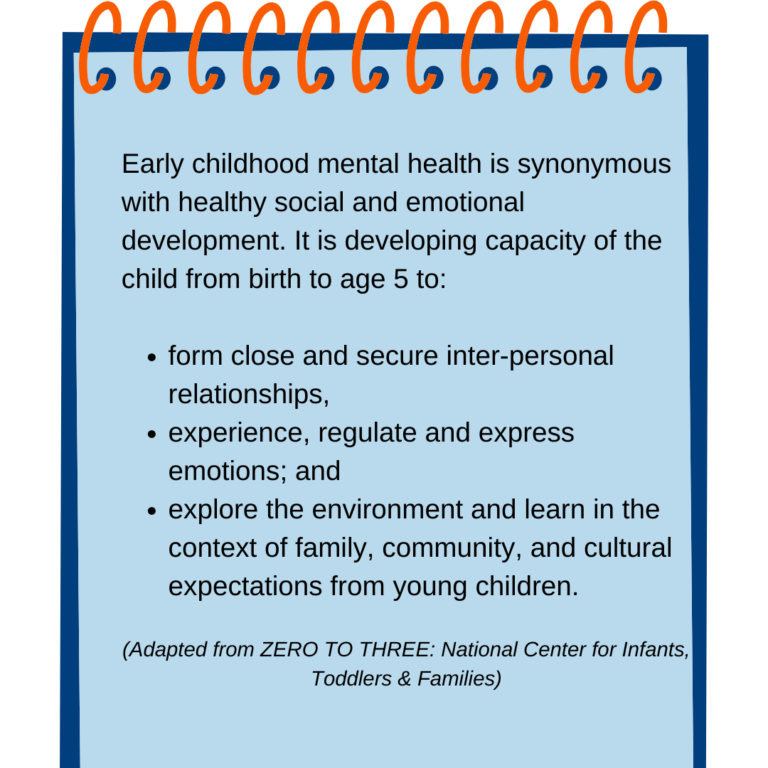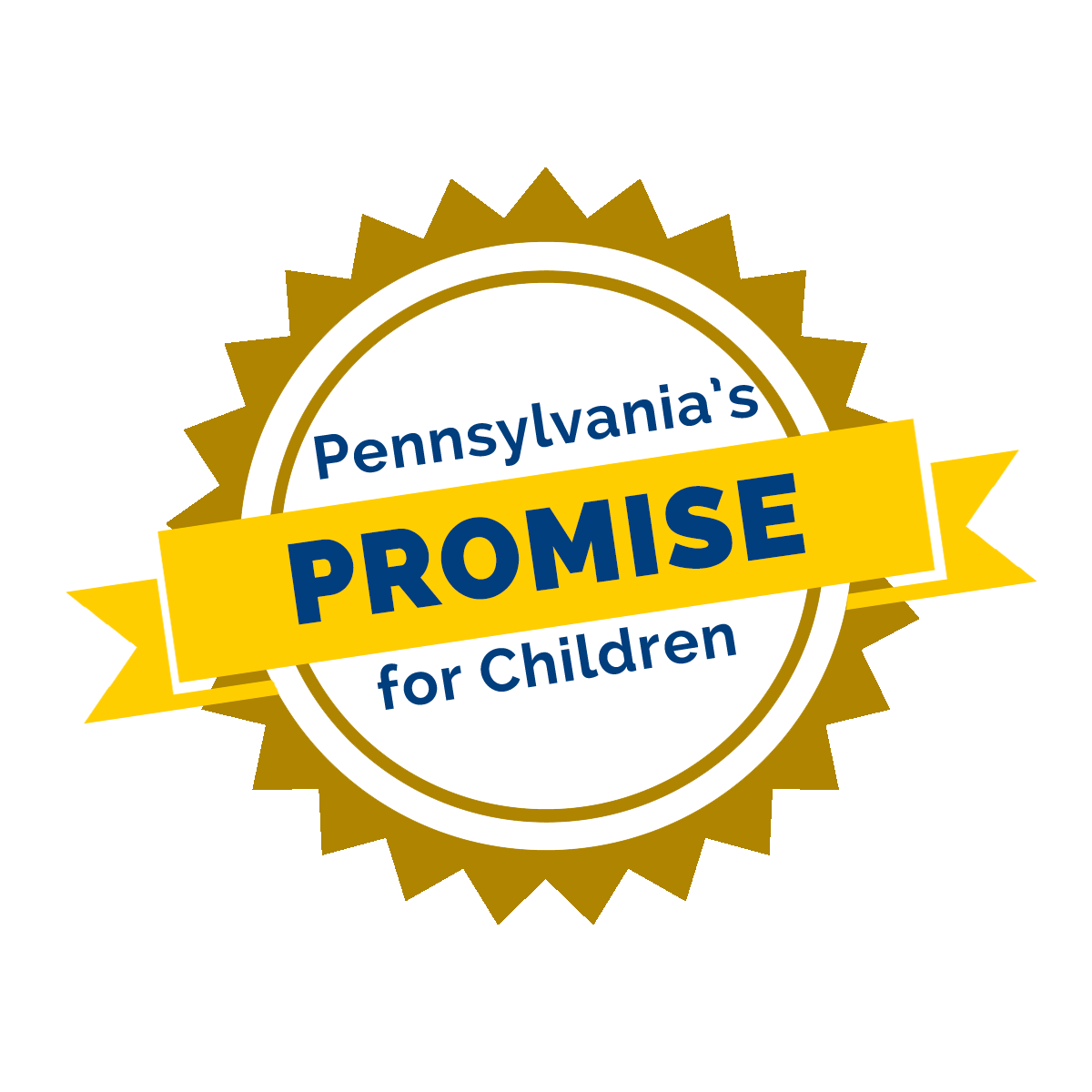Children’s mental health is important because it affects how they think, feel, and behave. It can impact areas like:
Foundation for Lifelong Well-being: Mental health in early childhood sets the stage for emotional, social, and cognitive development throughout life. Healthy mental well-being during early childhood contributes to resilience, coping skills, and overall happiness in adulthood.
Academic Performance: Mental health issues can hinder a young child’s ability to concentrate, learn, and perform academically. Addressing mental health concerns early can improve school attendance, engagement, and academic achievement.
Social Relationships: Young children with good mental health are better able to form positive relationships with peers, teachers, and family members. Healthy social connections are crucial for emotional support, personal growth, and overall well-being.
Physical Health: Mental health and physical health are closely intertwined. Children with untreated mental health issues may be at a higher risk for physical health problems such as obesity, chronic illnesses, and substance abuse.
Prevention of Long-term Problems: Addressing mental health concerns early can prevent more severe issues from developing later in life. Untreated mental health issues in childhood can escalate into more significant problems in adolescence and adulthood.
Family Dynamics: A young child’s mental health can impact the entire family. Addressing mental health concerns not only supports the child but also promotes a healthier family environment and strengthens family relationships.
Economic Impact: Mental health issues in childhood can lead to long-term economic costs due to healthcare expenses, decreased productivity, and potential involvement in the criminal justice system. Investing in children’s mental health early can yield significant economic benefits in the long run.
Community Well-being: Children with good mental health are more likely to become productive members of society, positively contributing to their communities and reducing the burden on social services and healthcare systems.
How can you help support your young child’s mental health? Check out these resources and supports below!

Resources for Families & Caregivers
- 3 Reasons Why Good Mental Health Matters (PA Alliance for the Advancement of Infant Mental Health): Information on how brain architecture, body & health, and behaviors & relationships can impact the mental health of infants.
- 5 Basic Human Senses (Bright Start. Bright Kids. Bright Future): Understanding how the basic human senses impact a child’s behavior and learning.
- 8 Tips to Help Children with Self-Regulation (Bright Start. Bright Kids. Bright Future): Tips to help young children learn skills to help them control or regulate themselves.
- Challenging Behaviors and Your Child (PA’s Promise for Children): Safe and effective methods to teach children right from wrong.
- Creating Routines (Bright Start. Bright Kids. Bright Future): Tips for establishing and enforcing routines
- Family Mealtimes (Bright Start. Bright Kids. Bright Future): How family mealtimes can strengthen the relationship between children and their family and impact physical and mental health.
- Grief and Loss (FOCUS on Early Childhood Mental Health): How to help children handle losses and changes
- Handling Transitions (Bright Start. Bright Kids. Bright Future): The importance of routines, and tips for helping children handle transitions.
- Healthy Minds, Thriving Kids Pre-K Project (Child Mind Institute): A video series, based on mental health research, created to make important mental health skills available to preschool children (age 3 to 5). These videos introduce important ideas, taught the way young children learn best: through entertaining, relatable stories set in a vivid, imaginary world. Each video features a memorable song that reinforces the key messages.
- Helping Children Through Traumatic Events (PA Office of Child Development and Early Learning): Resources for dealing with traumatic events for early learning programs, schools, community partners and families.
- How A Parent’s Mental Health Can Affect a Baby (PA’s Promise for Children): Ways new parents can support their own mental health while caring for a young child.
- Rethinking the Stoplight System (Bright Start. Bright Kids. Bright Future): Potential problems with the stoplight or other behavior management charts and alternative approaches.
- Sensory Issues: Body Movement and Balance (Bright Start. Bright Kids. Bright Future): How our senses work and what happens when they’re out-of-sync.
- Super Hero Play (Bright Start. Bright Kids. Bright Future): Tips to help foster creativity in a child’s superhero play, yet keep them safe.
- Teaching Children to Understand and Value Diversity (PA’s Promise for Children): Examples of things you can do to create an environment where diversity is valued, modeled and taught.
- The Importance of Parent’s Mental Health (PA’s Promise for Children): Tips for identifying causes of stress and ways to address stress.
- The Importance of Play (Bright Start. Bright Kids. Bright Future): The importance of play to healthy development and way to encourage play.
- To Nap or Not to Nap (Bright Start. Bright Kids. Bright Future): Ways getting enough sleep can impact young children’s ability to self-regulate and create secure emotional attachments.
- Understanding Developmental Milestone (PA’s Promise for Children): Information about developmental milestones to learn about typical childhood behavior and development.
- What We See Iceberg (Bright Start. Bright Kids. Bright Future): The behaviors seen in a child may be clues as to other challenges the child may be experiencing.
- Why Toddlers Bite (Bright Start. Bright Kids. Bright Future): Why biting is so common, and what can you do about it.
Resources for Early Childhood Education Professionals
- Bright Start, Bright Kids, Bright Future enewsletter: Monthly enewsletter that focuses on sharing information on infant/early childhood mental health and the importance of relationship-based approaches and supports that help infants and young children feel safe, supported, and valued by the adults around them.
- Handling Transitions (Bright Start. Bright Kids. Bright Future): The importance of routines, and tips for helping children handle transitions.
- Helping Children Through Traumatic Events (PA Office of Child Development and Early Learning): Resources for dealing with traumatic events for early learning programs, schools, community partners and families.
- Infant/Early Childhood Mental Health (IECMH) Consultation (The Pennsylvania Key): A program which supports the early childhood system workforce in supporting the social and emotional development of infants, toddlers and very young children.
- Rethinking the Stoplight System (Bright Start. Bright Kids. Bright Future): Potential problems with the stoplight or other behavior management charts and alternative approaches.
- Using Circle Time to Promote Social-Emotional Skills (Bright Start. Bright Kids. Bright Future): How to use circle time to promote a sense of community, and help children learn to know and enjoy each other, and to practice the social and emotional skills they need to succeed.
- Teaching Children to Understand and Value Diversity (PA’s Promise for Children): Examples of things you can do to create an environment where diversity is valued, modeled and taught.
- What We See Iceberg (Bright Start. Bright Kids. Bright Future): The behaviors seen in a child may be clues as to other challenges the child may be experiencing.
